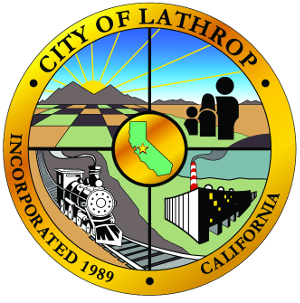The City of Lathrop’s longstanding goal of discharging highly-treated wastewater into the San Joaquin River could clear a major hurdle tonight.
When the Lathrop Planning Commission meets at 6 p.m. tonight they will consider a resolution that would affirm that the city’s surface water discharge capital improvement project is in line with the city’s existing general plan.
While it’s a relatively mundane agenda item – the city is required to do this with all capital improvement projects and the discharge proposal was only in its infancy when the last round of approvals was made – it denotes the progress of the proposal that Lathrop has long wanted to see come to fruition.
According to the staff report prepared for the agenda item, the project will establish a direct discharge from Lathrop’s consolidated treatment facility into the San Joaquin River after modifications will be made to the plant to remove chlorine from disinfected effluent.
In order to bring the project to fruition the city would need to install effluent pipelines in the city’s existing roadway and construct a new side-bank outfall along the river where the effluent will be discharged.
But disposing of the treated wastewater directly into the river wouldn’t be a constant option.
Based on the current plan the effluent will be mainly discharged directly into the river during winter months when irrigation demands are low and river flow is high and reduced in the summer months when irrigation demands along the river are at their peak.
But rather than spraying that effluent onto fields that are currently leased by the city, the plan calls for that highly-treated wastewater to be used for landscape irrigation through the city’s existing and expanding purple pipeline system – which moves non-potable water throughout the community for needs other than in-home domestic uses.
By increasing the purple pipeline distribution system Lathrop would be able to preserve precious potable water during summer months when demand is at its peak for residential and commercial irrigation purposes.
Thanks to advancements in treating wastewater, scientists have determined that effluent discharged from state-of-the-art plants like the consolidated treatment facility are in some ways cleaner than the drinking water that comes out of the tap and is perfectly safe to drink, even if the public has yet to fully embrace the idea.
Given California’s fickle water seasons and the possibility of another major drought, the use of treated wastewater for everyday functions is being touted globally as another step towards ongoing sustainability in a growing world.
The Lathrop Planning Commission meets on the third Wednesday of every month at Lathrop City Hall – located at 390 Towne Centre Drive. For more information, or to obtain a copy of the agenda, visit the City of Lathrop’s website at www.ci.lathrop.ca.us.
To contact reporter Jason Campbell email jcampbell@mantecabulletin.com or call 209.249.3544.






